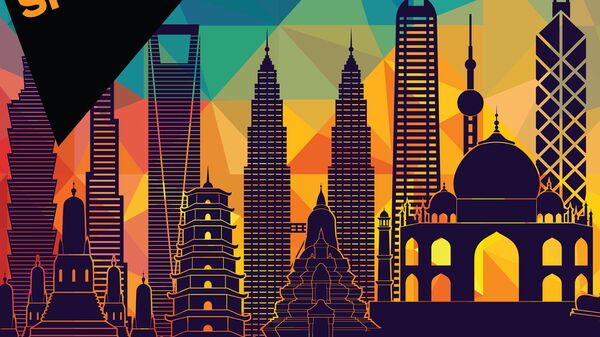Adam Garrie, the director of the influential online magazine Eurasia Future joins the program.
Many western politicians and media outlets have criticized Duterte for taking a very tough line on drug trafficking. The Human Rights Watch Group and other groups have said that Filipino police have routinely executed unarmed suspects during anti-drug operations, and indicate that the anti-drug campaign is an attempt to clamp down on civil liberties. Adam says that foreign experts do not understand the seriousness of the drug problem in the Philippines, and that tough anti-drug measures were necessary. "A group of racketeers traffickers, dealers, corrupt police, corrupt politicians, corrupt bureaucrats, basically held the country to hostage. Worst of all, there was the use of a very potent variant of methadone, and the things that people do when they are on these drugs….You have women raped in broad daylight, you have the throats of children slit, you have arson attacks, you have physical mutilation and random attacks against people on the street, in their homes, in. public places, it's truly a nightmare. The seriousness of the drug problem that Duterte inherited is a problem that is equally as serious as the Daesh terrorist problem in Iraq and Syria, the terror problems in Libya, there is no difference. When you have people on substances that are terrorizing entire cities and you have a criminal network that stretches all the way from local drug dealers to top officials taking money to passively and sometimes actively facilitating the drug trade, you have a real problem. Duterte, in taking that line has done something that has won the support of the vast majority of Filipinos…."
The conversation moves on to The Philippine's policy towards North Korea. Adam says that after the Singapore summit between Trump and Kim-Jong-un, Duterte "came out and said that it was a wonderful conclusion, and that it would be an honor for him to meet Kim Jong-un. So his attitude has become very positive and I hope that in the future, once the economy opens up, there should be more trade between a more harmonized Korea and the Philippines… Duterte wants the best for his country. As long as people approach the Philippines with respect, and with a clear, open-minded business model, he has shown both by word and deed that he is willing to talk to those kinds of people…"
The Philippines is a member of ASEAN (The Association of South East Asian Nations), members of which get on with China, and some do not, in particular Vietnam. On the issue of where does Duterte stand with what some countries see as ‘Chinese expansionism' in the area, Adam says: "There is a quite a lot of progress being made, even though it is happening gradually and without fanfare. Duterte has switched from a policy of open hostility to one of dignity, national loyalty, but also pragmatism and openness when it comes to issues within the South China Sea. The area where Duterte has made his biggest accomplishment in this respect is when he worked with China to secure a long-term agreement to mutually exploit the resources in the South China sea. Both Philippine and Chinese companies will be working together to make the most out of the shared resources in the area on a win-win model. This has now been adopted by ASEAN as a whole, at the last summit in Singapore…" In regards to the presence of American troops in The Philippines, Adam says that: "it is unlikely that US troops will leave soon, and Duterte is not anti-American as such, he's not pro- or anti-China, he's pro-The Philippines, which means that he's the first president to take that point of view in quite a long time….Duterte simply wants the best agreement possible with other countries, and everybody knows what happens to any country that quarrels with the US…"
Other topics which are discussed in this program include: the attitude of the Philippines to the ‘Quadrilateral Security Dialogue', Duterte's power base in connection with the decline of Roman Catholicism in The Philippines, and whether or not the Philippines is an Eastern or Western country, or reflects aspects of both.
We'd love to get your feedback at radio@sputniknews.com

